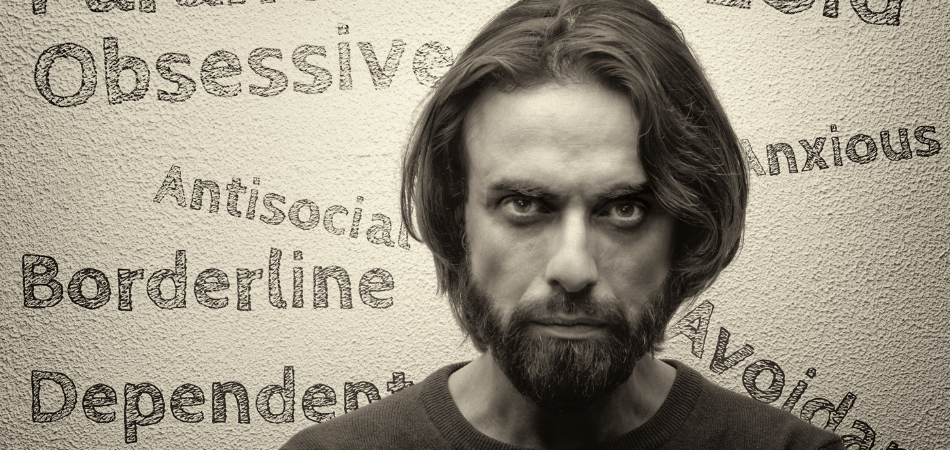Personality disorder and addiction

Written by:
Last Updated:
June 24th, 2025
There is a well-known and significant link between personality disorder and addiction. In fact, almost one in four individuals diagnosed with a personality disorder were also found to have a co-occurring substance abuse disorder. Those suffering from a personality disorder are at a considerably higher risk of developing an addiction as they may use substances to self-medicate or cope with negative emotions.

What is a personality disorder?
Personality disorders are mental health conditions that affect how someone thinks, feels and behaves. They affect approximately one in twenty people in the UK and typically develop during adolescence or early adulthood.
Personality disorders can cause significant distress and impairment in many areas of your life. There are several different types of personality disorders and they are categorised into three groups:
Suspicious…
- Paranoid personality disorder
- Schizoid personality disorder
- Schizotypal personality disorder
Emotional and impulsive…
- Antisocial personality disorder (ASPD)
- Borderline personality disorder (BPD)
- Histrionic personality disorder
- Narcissistic personality disorder
Anxious…
- Avoidant personality disorder
- Dependent personality disorder
- Obsessive compulsive personality disorder (OCPD)
While all of these personality disorders may present different symptoms, they all have the potential to lead to substance abuse and addiction. With continued patterns of dysfunctional thinking and feeling, many people unfortunately turn to substances as a way to suppress their negative emotions.
Signs and symptoms of a personality disorder
Personality disorders are conditions that can significantly affect a person’s ability to function in social and occupational settings. While not all personality disorders manifest in the same way, and each will present its own set of symptoms, you can typically expect to see some of the following signs:
- Difficulties with relationships
- Problems at work or school
- Impulsive or risky behaviours
- Feelings of distress or anxiety that are intense and persistent
- Difficulty controlling emotions
- Distorted thoughts or perceptions
- Significant changes in mood or behaviour
The difficulties you may face when trying to cope with a personality disorder can often feel overwhelming. It can be all too easy to pick up a drink, pop a few more prescription meds or attempt to numb your emotions with illicit drugs.
If this is the case for you and you have found yourself losing control over the substances you consume, the team at Sanctuary Lodge can get you back on the right path. All you have to do is pick up the phone and our admissions team will help to get you started.
How are personality disorders and addiction linked?
Personality disorders and addiction are both complex, multi-faceted conditions that can cause a great deal of distress in your life. While there is no one-size-fits-all explanation for the link between these two conditions, there are several theories that attempt to explain why someone with a personality disorder might be more likely to suffer from addiction.
Self-medication
People with personality disorders often use substances as a way to cope with their symptoms. For example, someone with an anxious personality disorder may use alcohol to calm their nerves, while someone with a suspicious personality disorder may use drugs to alleviate anger.
Difficulty regulating emotions
People with personality disorders often have difficulty regulating their emotions. This can lead to a higher likelihood of engaging in impulsive or risky behaviours, including substance abuse.
Loss of control
Those suffering from a personality disorder are already prone to erratic behaviour and emotional instability. When drugs or alcohol are introduced, your ability to make rational decisions decreases further and can quickly lead to your substance abuse spiralling out of control.
How do I know if I have an addiction?
It can be difficult to tell if you or someone you love is struggling with addiction, especially if you are also grappling with a personality disorder. There are some general warning signs that may help you determine if you may have an addiction:
- Do you feel that you need to use drugs or alcohol to cope with your personality disorder?
- Do you feel that you can’t function properly without drugs or alcohol?
- Do you turn to substances as a way to manage your personality disorder?
- Have you tried to quit using drugs or alcohol but been unsuccessful?
- Are you continuing to use substances even though it’s exacerbating your personality disorder?
- Do you find yourself using more and more of the substance in order to get the same effect?
If you answered yes to any of these questions, it’s possible that you have an addiction. This is a serious medical condition that requires treatment by a professional. If you think you may have an addiction, Sanctuary Lodge can help you to overcome your issues, as well as manage any co-occurring disorders.
Which condition needs to be treated first?
With a dual diagnosis such as addiction and personality disorder, it is important to identify which is the primary condition and secondary condition. Simply put, your main condition is called a primary condition. Any additional disorders that have developed as a result of your main condition are called secondary conditions.
For example, if a person has a primary condition of addiction, they may go on to develop a secondary condition of a personality disorder triggered by the substance use.
Conversely, if the primary condition is a personality disorder it can lead to the secondary condition of addiction if you attempt to manage it or self-medicate using substances.
There are several ways to tell which is which. The most obvious way is to look at which condition came first – this will be the primary condition. Addressing the primary condition should resolve ongoing secondary issues, so it is important to determine which is which. The best way to identify your primary and secondary condition is to consult with a qualified medical professional.
What treatment is available for personality disorders and addiction?
Dual diagnosis, or the presence of both a mental health disorder and a substance abuse problem, is a complex issue that requires specialised treatment. An inpatient rehab that focuses on dual diagnosis can provide comprehensive care that addresses both disorders simultaneously.
At Sanctuary Lodge, our clients can expect to receive individualised care from a team of doctors, therapists and counsellors who are experienced in treating dual diagnosis. Typical therapies used in treating personality disorders and addiction include:
- Cognitive Behavioural Therapy (CBT): particularly effective in treating personality disorders and addiction, CBT will help you to identify and change dysfunctional thinking and behaviour patterns.
- Psychodynamic therapy: focuses on the psychological roots of emotional turmoil and allows you to self-reflect and examine your thoughts, feelings and behaviours.
- Solution-focused therapy: helps you to discover your strengths and focus on goals, rather than fixating on problems surrounding your personality disorder and addiction.
- Group therapy: allows you to connect with others experiencing similar issues and build a support network of like-minded peers.
You will also have access to a variety of supportive holistic treatments including yoga and meditation, acupuncture, gong baths, exercise, lectures and workshops.
In most cases, both the addiction and the underlying personality disorder can be effectively treated with long-term care. Our team is happy to provide you with all the resources and information you need to maintain a stable recovery.
Next steps
Mental health and addiction is a co-occurring disorder which is often seen as two separate issues. They are, in fact, very closely intertwined. If you believe you are suffering from a personality disorder and co-occurring addiction, you no longer have to battle them alone. There is no shame in seeking treatment and getting the help you need to live a happy and fulfilling life.





